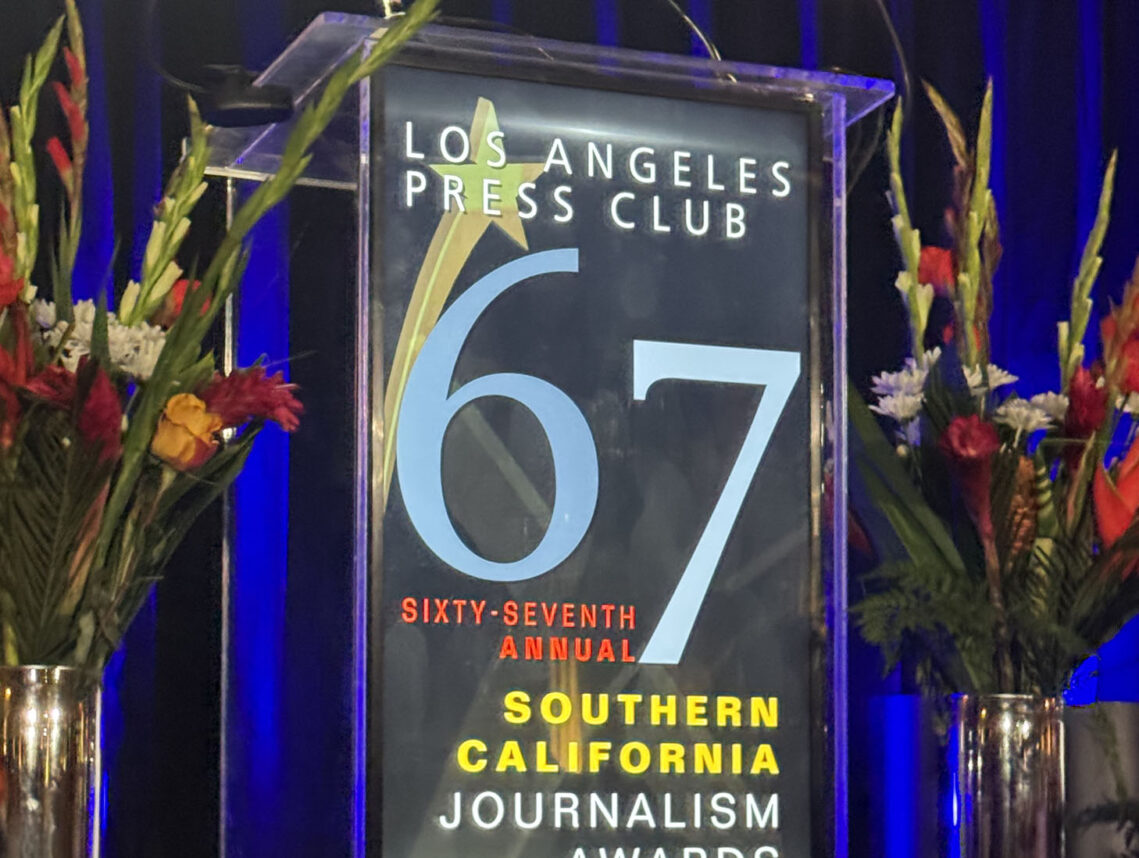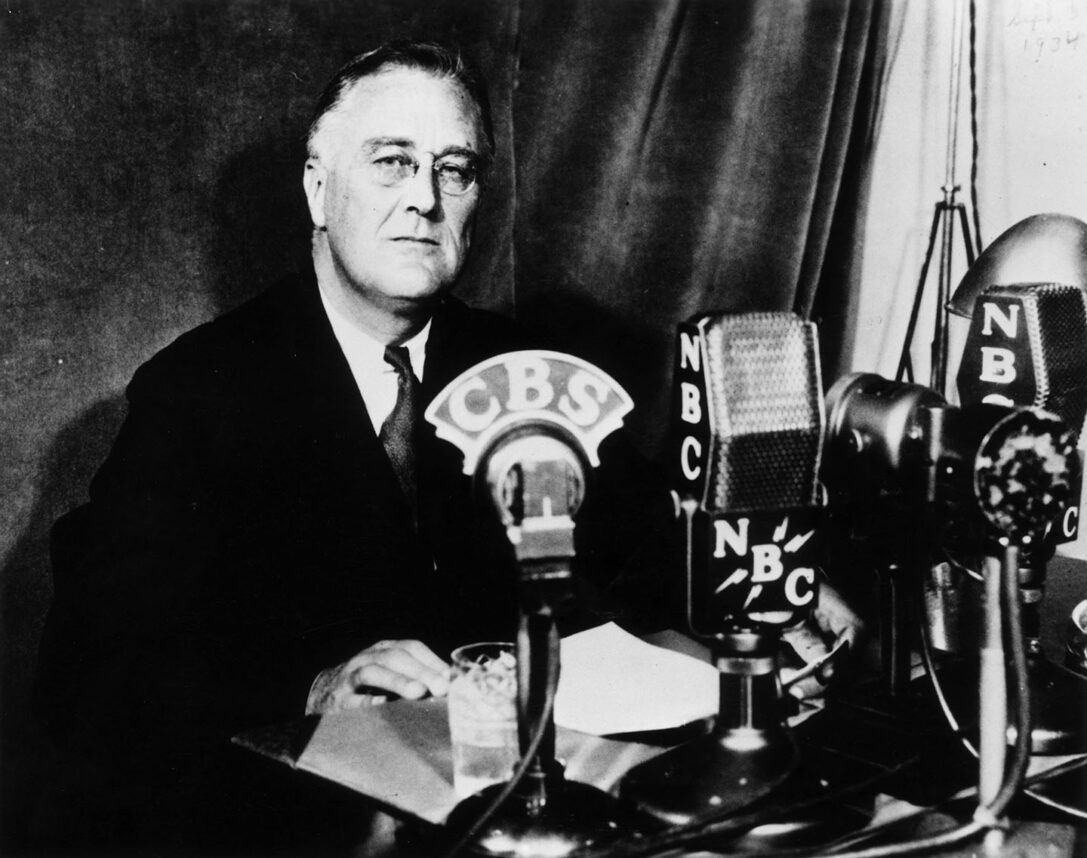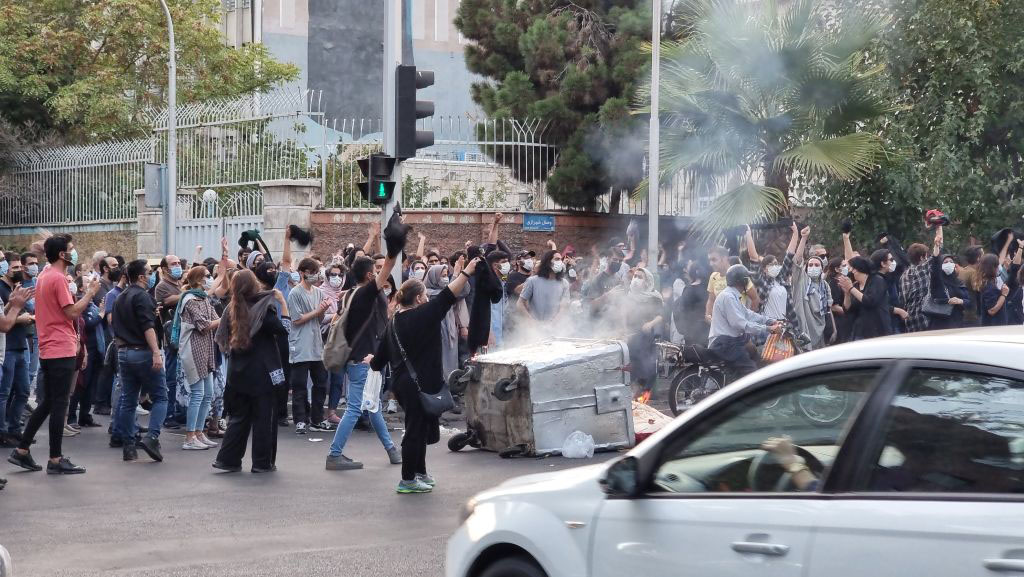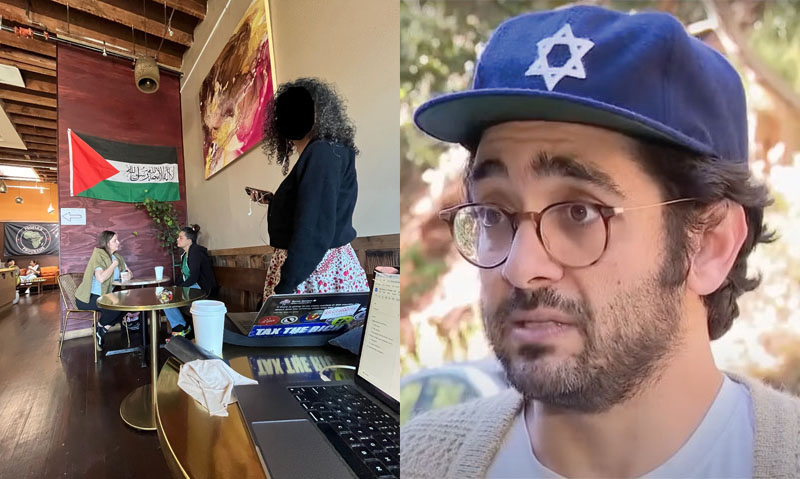In 1967, following Israel’s stunning victory in the Six-Day War, the Polish communist government joined other Soviet bloc countries in launching an “anti-Zionist” (read anti-Semitic) campaign, which, by the end of the following year, drove out most of the country’s remaining Jews who had survived the Holocaust.
The label “Zionist” became a code word not only for Jews, but for any other “enemy of the state.” Hardest hit were academicians and university students, who, as in many European countries and the United States, rebelled against the governing establishments.
As depicted in the tense Polish film “Little Rose,” the trigger for the student uprising in Warsaw and other cities had a uniquely historical twist in a country with a long national memory of oppression by neighboring Russia.
To celebrate the 50th anniversary of the Bolshevik October Revolution, the Polish Politburo ordered a theater celebration, at whose center was a revival of the century-old play “Dziady” (“Forefathers’ Eve” in English) by the great Polish Lithuanian poet Adam Mickiewicz.
The play celebrates the 1830 insurrection by Polish patriots against the rule of Czar Nicholas and was immediately taken up by enthusiastic audiences as a call to rebel against their communist overlords.
In Warsaw, the chagrined regime abruptly shut down the play and enraged patrons, mainly university students, who then stormed into the streets demanding freedom of expression. The regime responded brutally, under the banner of fighting “imperialist Zionist agents.”
This historical context is useful for non-Polish audiences to fully understand “Little Rose,” even though the film can stand on its own as a cat-and-mouse thriller, enlivened by heavy doses of graphic sex, pitting the ruthless Polish Security Service against its real and imagined “Zionist” opponents.
The opening scene gives some hint of things to come. Security agent Roman Rozek (Robert Wieckiewicz), doodling while attending a staff meeting, draws a Star of David on a piece of paper. Moments later, he adds a gallows, with the Star of David now dangling at the end of the noose.
Roman is assigned to get the goods on Adam Marczewski (Andrzej Seweryn), a revered writer and university professor, suspected of writing anti-regime reports for Radio Free Europe.
The hard-drinking, chain-smoking agent, a former boxer, enlists his sexy but apolitical girlfriend Kamila, who works in the university library, to entrap the widowed professor, even if it means going to bed with him.
Kamila (Magdalena Boczarska) is initially reluctant, but, bullied by her lover, she agrees to the assignment. Gradually, she begins to enjoy her role as a blond Mata Hari, under the code name Little Rose.
But as she gets to know the fatherly professor and his circle of intellectual friends, she begins to question her undercover job. The more so as the older man falls passionately in love with her, leading to some steamy bedroom scenes.
The ending in this skillfully acted politico-sexual triangle won’t be divulged here, but the outcome is not as predictable as it may seem.
In the film’s final scene at a train station, we see some of the 15,000 Poles, mainly Jews, who fled their country in the late 1960s to seek refuge and freedom elsewhere.
Director and co-writer Jan Kidawa-Blonski says that his script was inspired by an actual incident of that era.
In it, the well-known writer Pawel Jasienica, a political opponent of the regime, was seduced by a female secret service agent, who then married him, with the consent of her superiors.
Throughout their marriage, the agent informed on her husband, and his circle of friends, until his death.
It seems that the movie industry in every European country involved in World War II and its aftermath — as perpetrator, victim or collaborator — must eventually examine and return to that era.
The Germans came first, the French later, and it appears that the Poles are now focusing on the post-war communist era.
It may be a coincidence, but complementing the “Little Rose” story, Poland’s entry in next year’s Oscars race, “All That I Love,” depicts the rise of the Solidarity movement, established in 1980 under the leadership of Lech Walesa.
To mark the 30th anniversary of that historic event, “All That I Love” was to be screened Dec. 15, at the Museum of Tolerance, with the participation of Walesa, later elected Poland’s president.
“Little Rose” opens Dec. 17 at Laemmle’s Music Hall in Beverly Hills.


































 More news and opinions than at a Shabbat dinner, right in your inbox.
More news and opinions than at a Shabbat dinner, right in your inbox.